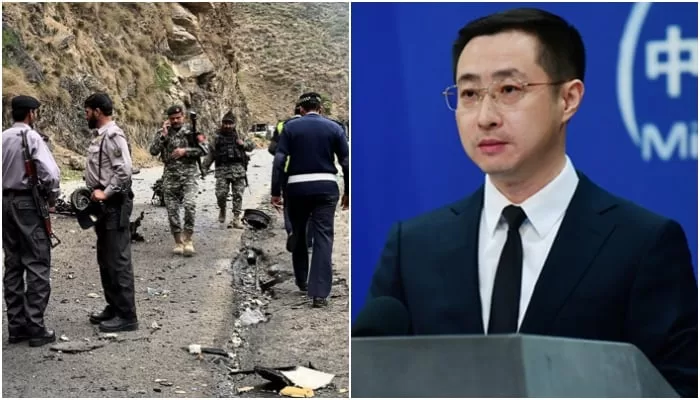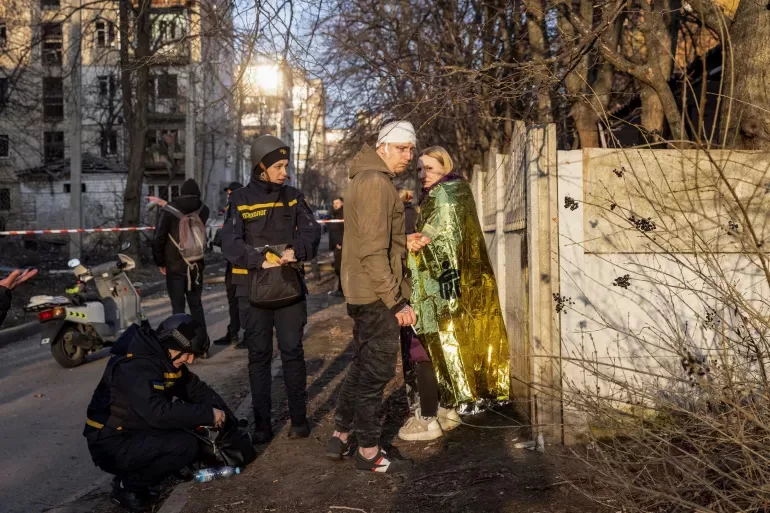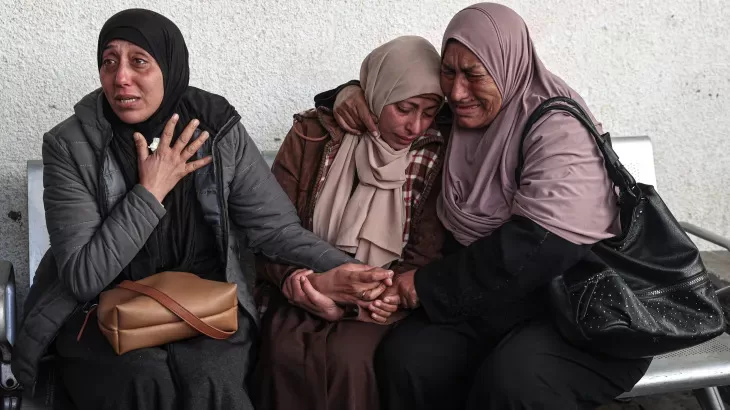China, Pakistan resolve to make terrorists pay the price: Lin Jian
Chinese Foreign Ministry Spokesperson Lin Jian (right) addresses the press conference on March 27, 2024, and security officials inspecting site of the attack near Khyber Pakhtunkhwa’s Bisham city on March 26, 2024. — Chinese foreign ministry/AFP Following a suicide attack on Chinese engineers in Pakistan yesterday, Chinese Foreign Ministry Spokesperson Lin Jian has said that both countries have the resolve and capability to make terrorists pay the price and no attempt to sabotage bilateral cooperation will even succeed. “Beijing remains firm in its commitment to working with Islamabad in various fields,” Jian made the statement while addressing a regular press conference on Wednesday after a fierce terrorist attack in Khyber Pakhtunkhwa’s Shangla district targeting a vehicle, resulting in killing of a woman among five Chinese nationals, and a Pakistani driver on Tuesday. “Our two countries are all-weather strategic cooperative partners. Our iron-clad friendship is deeply rooted in the two peoples,” he added. “We strongly condemn this act of terrorism. We express deep condolences over the lives lost and extend sincere sympathies to the bereaved families. We have previously stated our position on this incident,” Jian reacted to the Shangla attack in which a suicide bomber crashed his explosives-laden car into the vehicle carrying the victims. He elaborated that Chinese foreign ministry and the Chinese Embassy in Pakistan activated the emergency response mechanism and swiftly engaged in emergency response and close communication with Pakistan both in Beijing and Islamabad. “We asked Pakistan to speed up the hunt for the perpetrators, punish them by law, let justice be done for the victims, and take effective steps to protect the safety and security of Chinese personnel in Pakistan. “Pakistan promised to thoroughly investigate the incident, provide timely updates on the progress of the investigation, strengthen security measures for Chinese personnel, projects and institutions in Pakistan, and ensure the safety of Chinese nationals in Pakistan. Relevant work is proceeding in an orderly way.” The official appreciated response from some countries which condemned the terrorist attack and extended condolences over the Chinese victims. “We reiterate that terrorism is a common enemy of humanity. It’s the shared responsibility of the global community to fight terrorism and stop such tragedies from happening again,” he added. Reitering Beijing’s response, Jian said: “China firmly supports Pakistan in fighting terrorism. We are solid in our commitment to the safety and security of Chinese nationals, institutions and projects overseas.” It was not the first time that Chinese nationals came under attack in Dasu, the site of a major dam, as 13 people, including nine Chinese nationals, were killed in an explosion in 2021. Chinese engineers are currently working on a number of projects in Pakistan with Beijing investing over $65 billion in infrastructure works as part of the China-Pakistan Economic Corridor (CPEC) under Beijing’s wider Belt and Road initiative. No one claimed responsibility for Tuesday’s attack, nor was there a claim for the 2021 attack. Source: https://www.thenews.com.pk/latest/1172928-china-pakistan-resolve-to-make-terrorists-pay-the-price-lin-jian
China, Pakistan resolve to make terrorists pay the price: Lin Jian Read More »
News

















